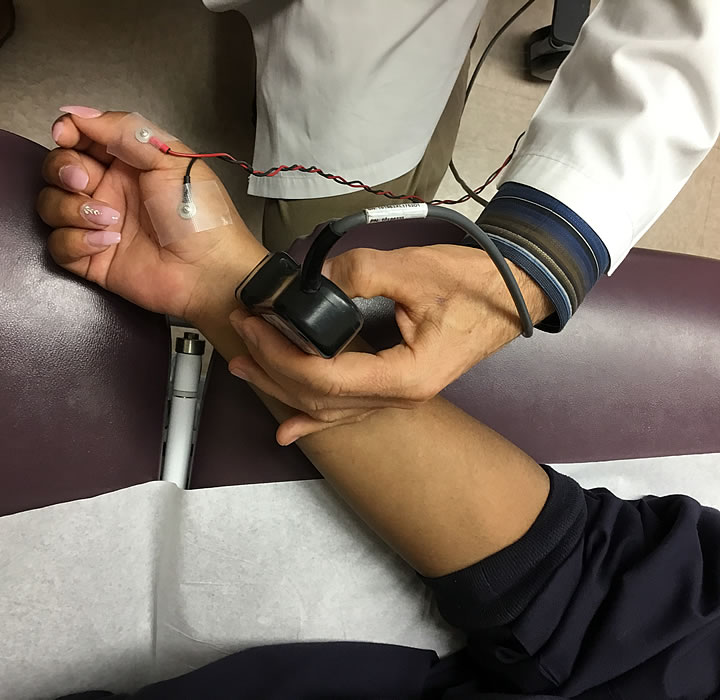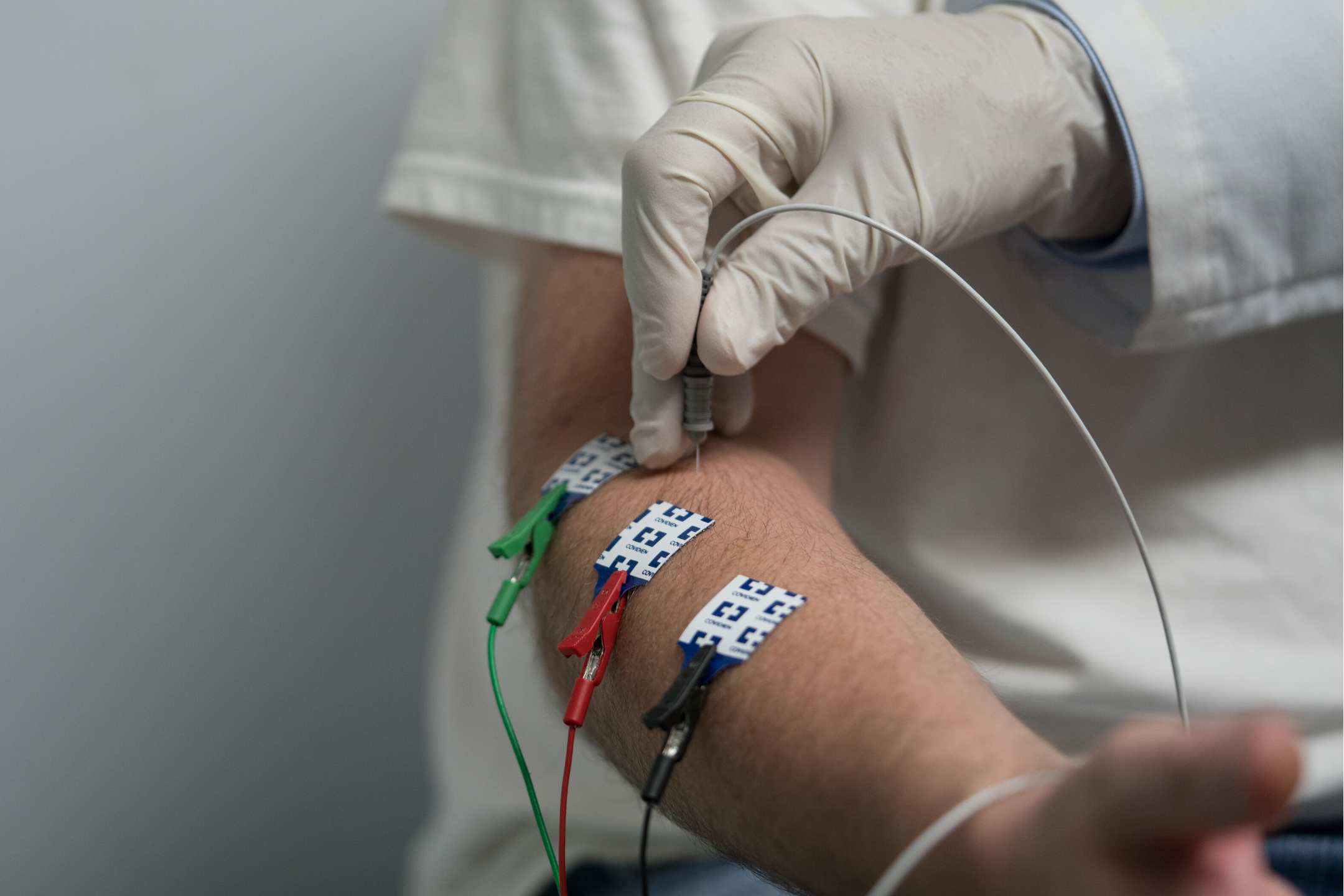NCV Test in Delhi
NCV test can identify nerve damage. during the test, your nerve is stimulated, usually with electrode patches attached to your skin.
Nerve conduction studies help measure the speed at which nerves send messages to the brain. This is done by placing electrodes on your skin. Your consultant then uses electrical activity to record how fast impulse moves along a nerve.
During the test, your nerve is stimulated, usually with electrode patches attached to your skin. Two electrodes are placed on the skin over your nerve. One electrode stimulates your nerve with a very mild electrical impulse. The other electrode records it. The resulting electrical activity is recorded by another electrode. This is repeated for each nerve being tested.
Nerve conduction studies is recommend for following diseases:
Symptoms of nerve involvement:



 For More Info
For More Info